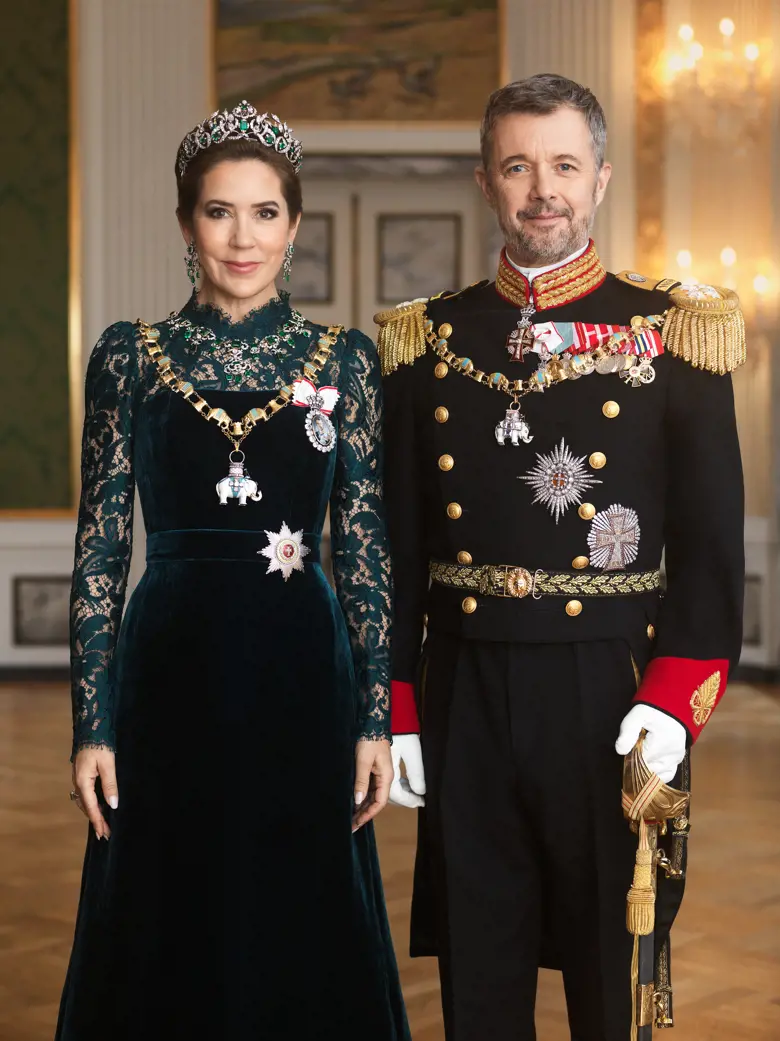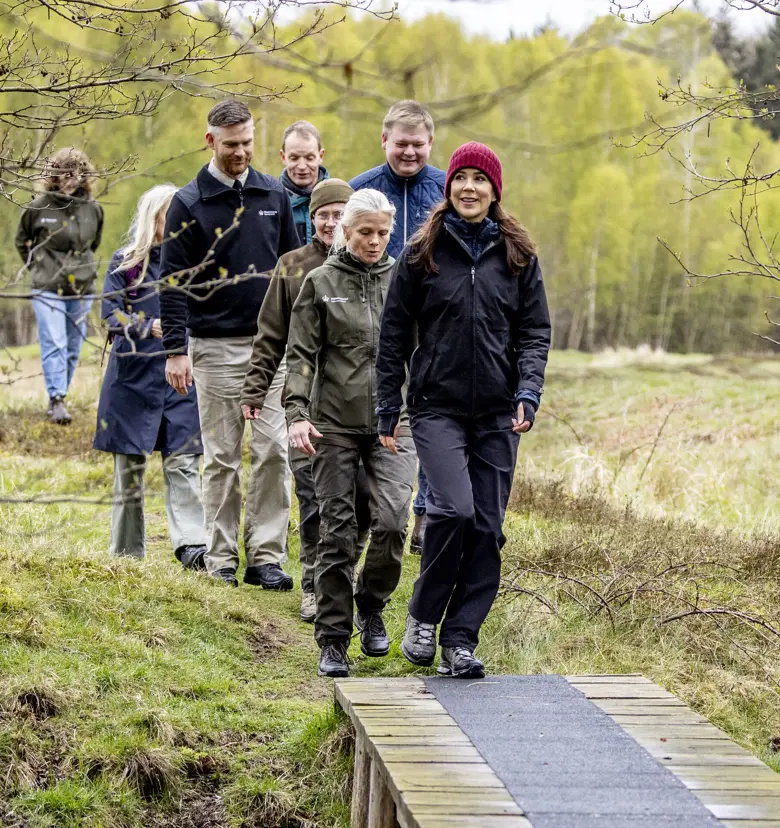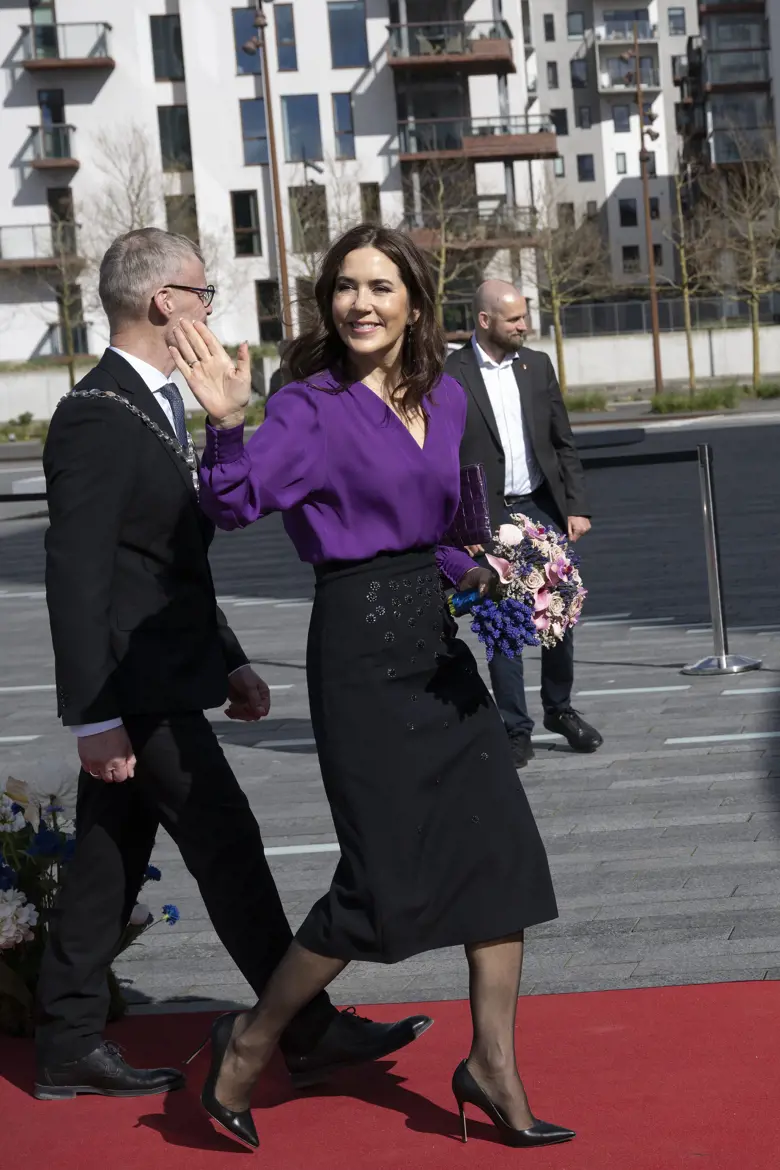HRH The Crown Princess’ remarks at the OECD 2020 Global Forum on Environment 5 March 2020, Paris
Offentliggjort den 5. marts 2020 / Published on 5 March 2020
Talen blev i H.K.H. Kronprinsessens fravær holdt af OECD-ambassadør Carsten Staur.
Ministers, Excellencies, distinguished guests, ladies and gentlemen,
Good morning.
I would like to start by thanking OECD for once again inviting me to participate in the Global Forum. A forum that is designed to ‘deep-dive’ into some of the most pressing challenges facing people and planet and hopefully, come up for breath with new momentum. The 2020 global forum is on the Environment and the mainstreaming of gender and the empowerment of women for Environmental Sustainability.
I strongly believe that gender equality is central to the SDGs (as I’m sure do, most of you), and if it is not achieved, the implementation of all the goals will be compromised.
It is also obvious to me, that gender equality, climate change and environmental degradation – some of the most severe challenges facing our world – are closely linked and solving them requires an approach that integrates climate and gender action.
So, I’m very pleased to have the opportunity once again to address a group that as individuals and even more so as a group – and here I will use a good Australian expression – by working together can, push the ‘pedal to the metal’ and create the much needed acceleration the world needs to see.
Climate change affects men and women differently because of the different traditional roles, social norms and livelihoods that affect each gender. We have now reached a point where we are more than aware of the interconnectivity of global challenges and that solutions will be only sustainable if designed with that in mind. The SDG framework that the world has agreed upon, illustrates this all too clearly.
So, why is it that the gender perspective is often missing in our discussions and design of solutions to overcome these pressing challenges?
2019 and 2020 are both years with important anniversaries marking 25 years of perhaps the most significant international frameworks on the rights of women and girls; the ICPD or the Cairo Program of Action and the Beijing Declaration and Program for Action.
The Cairo Program of Action, articulated a bold new vision about the relationship between population, development and individual well-being and that empowering women and meeting people’s needs for education and health, including Sexual and Reproductive Health, are necessary for both individual advancement and balanced development.
Progressive thinking 25 years ago…. that is under threat today. This thinking, this milestone has fundamentally shaped the lives of women, men and families, and the societies in which they live. It has contributed to reducing poverty and hunger and improving education and health, globally. More girls today are attending and completing school, fewer are getting married or becoming mothers while the themselves are still children, and more are gaining the skills they need to excel in the future world of work.
But at the same time, we must acknowledge the extent and depth of inequalities that continue to exist. We have far from met the promise made 25 years ago.
I was fortunate to attend the Nairobi Summit last November where, as a global community we reaffirmed the promise of Cairo and looked to new ways to finally deliver on that promise.
And to truly deliver on that promise today, requires also understanding the impact that climate change and environmental degradation has on women and girls and recognizing their role in designing and implementing sustainable solutions for all.
People all over the world are experiencing the significant impacts of climate change; more frequent and more intense storms, floods, droughts and heat waves are part of the changes. We see food scarcity problems. People are losing their homes, their land, their livelihoods.
In other words: A change in climate and natural resources affects everyone no matter who we are, where we live or what we have. It is however those who have least and those who are in the most vulnerable situations and places who are hit hardest. And as I’ve said, the consequences are not gender neutral - women and girls are often hit disproportionally.
Disproportionate because of entrenched social norms and traditions, societal and family structures. For example in some parts of the world, men primarily dominate decision making on what to plant and where, how much produce to sell and for what price. Women's decisions are mainly focused on what to cook for the family, and what crops to grow for consumption at home. And generally, they have far less access to and control over the resources they depend upon.
Such gender restrictions hold back economic and social progress and are a key cause of inequalities that trap men, women and children in poverty, limiting their potential and exposing them even more to climate change.
Further limited mobility due to climate change can restrict women and girls’ access to life-saving health service, and here I mean the necessity of sexual and reproductive health services. For example, lack of access to contraceptive services can lead to unplanned pregnancies and increased maternal mortality and morbidity, as in desperate situations women may have little choice but to resort to unsafe and potentially life-threatening methods to end their pregnancies.
Climate change is expected to increase the frequency and severity of extreme weather. Therefore, it is important that we are acutely aware that during and after natural disasters women’s roles as caregivers are intensified and can lead to illness and exhaustion. And in the aftermath, often the societal and family structures that serve as protection for women and girls break down leading to an increase in domestic and sexual violence, trafficking and child marriage.
Yes, women are especially vulnerable to the consequences of climate change and environmental degradation. Therefore, this Global Forum is both relevant, timely and necessary.
The social norms and cultural traditions, or gender inequality that are often drivers of women and girl’s vulnerability are also the conditions that make them an essential part of the solution. They in fact, represent a primary resource with their knowledge of the land, insights and experience in managing the land and the new climate challenges they face each year.
The voices of women still too often remain unheard in decisions that affect not only them and their families but, also their local communities and beyond. Some would argue that women can add more empathy and inclusiveness into problem-solving, so solutions are more likely to reflect the common interests of a community and thereby have a stronger chance of being viable and durable.
We must ensure an enabling environment for the increased participation and substantive inputs of women in decision and policy making. We can no longer exclude a resource that has so much to offer.
A little over a year ago I visited the Northern Rangeland Trust, a community conservancy membership organization in the North of Kenya whose mission is to develop resilient community conservancies that transform people’s lives, secure peace and conserve natural resources and wildlife. The organization works by empowering the local people to take charge of their own communities and their own wild spaces to build sustainable economies.
Gender equality and the empowerment of women are key in this regard. The communities questioned what was considered ‘proper’ work for men or women and realized that loosening the gender roles created a greater space for growth and development. By sharing work and opportunities more equally and by improving discussions and decision-making between men and women, the community began to see a reduction in poverty and an improvement in their resilience to climate change threats.
Climate change makes it even more important to further girls and women’s access to education, jobs, health services and their right to decide over their own body. Besides their valuable knowledge and experience with climate change, women’s empowerment is also essential for creating more sustainable and resilient families.
When faced with challenges with the level of complexity that we are seeing, we must move beyond traditional approaches, we must unleash human creativity and innovation. We need to work together and to engage in untraditional partnerships. We need everyone onboard. We must draw on the human capital the world is gifted with. All human capital - men and women, boys and girls – and all generations. We need to accept that climate change has no boundaries.
The program of these two days covers many areas and I hope that the discussions, best practices and solutions found can accelerate a better gender perspective in climate action and environment-related sectors and policies.
I strongly believe that by loosening the entrenched gender roles in our families and societies, we will begin to develop a new, a more modern and flexible, a more effective and clever approach that can become our ultimate weapon against that which is threatening our homes, our livelihoods, our future.
Thank you



